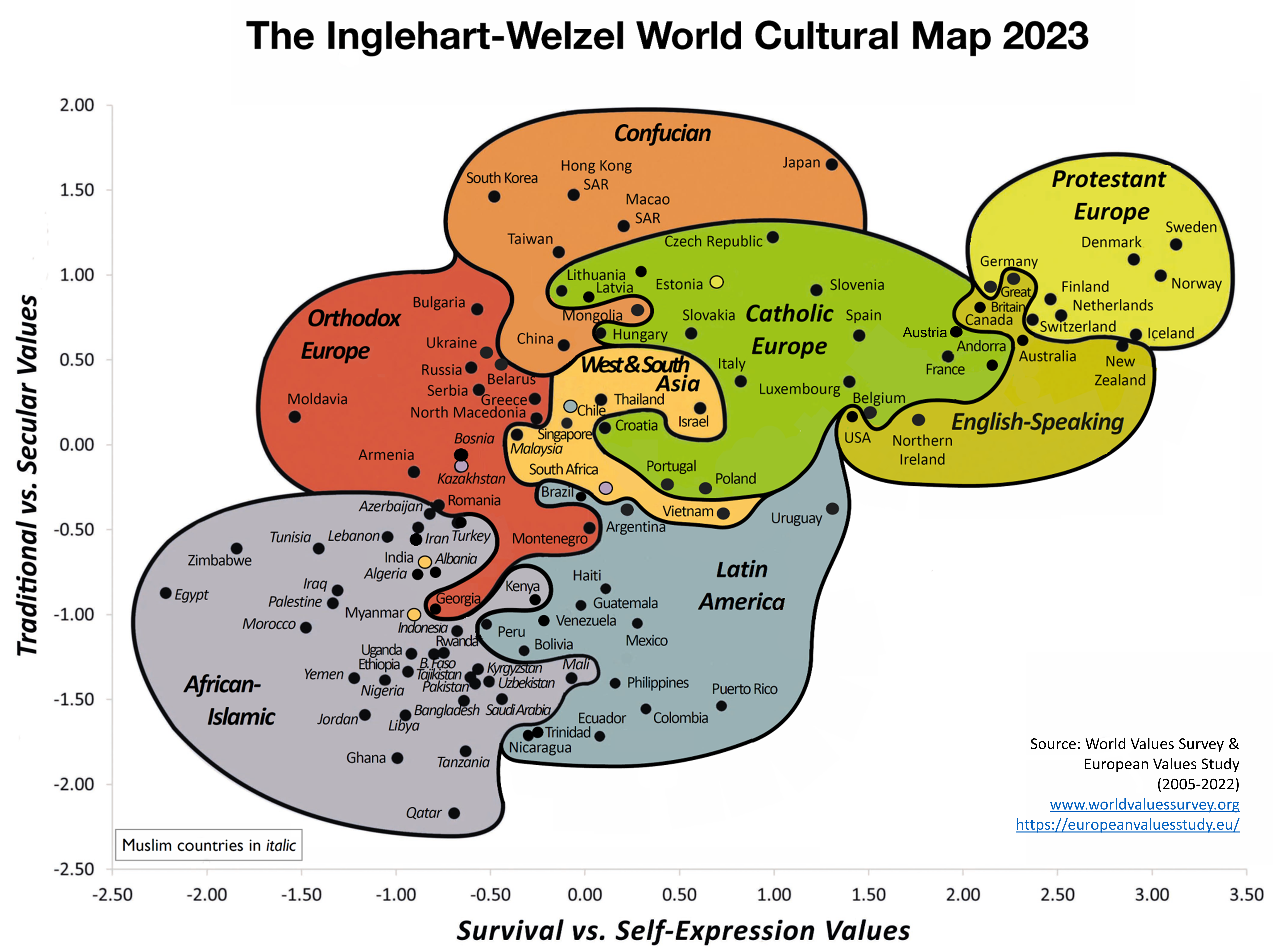In social science, Value is simply what individuals or societies consider "good". There's an entire field of philosophy studying values, called Axiology. Why study values? Because they affect our behavior.
In the picture above, you can see the results of the latest World Values Survey, which is conducted every 5 years by an international organization founded by Ronald Inglehart back in 1981. Each country on this map is a point in a two-dimensional space, where the vertical axis represents traditional vs secular values, and the horizontal axis represents survival vs self-expression, sometimes referred to as safety vs freedom.
Here's an explanation of these terms from the original website:
Traditional values emphasize the importance of religion, parent-child ties, deference to authority, and traditional family values. People who embrace these values also reject divorce, abortion, euthanasia, and suicide. These societies have high levels of national pride and a nationalistic outlook.
Secular-rational values have the opposite preferences to the traditional values. These societies place less emphasis on religion, traditional family values, and authority. Divorce, abortion, euthanasia, and suicide are seen as relatively acceptable. (Suicide is not necessarily more common.)
Survival values place emphasis on economic and physical security. It is linked with a relatively ethnocentric outlook and low levels of trust and tolerance.
Self-expression values give high priority to environmental protection, growing tolerance of foreigners, gays and lesbians, gender equality, and rising demands for participation in decision-making in economic and political life.
NB: If, after reading these explanations, you conclude that traditional is bad and secular is good, this is only because your personal values appear to be at the secular end. In reality, this is way more complicated.
In traditional societies, people recognize themselves as a part of the community more than as individuals. As a result, they trust each other and don't trust institutions. For example, if you need to borrow some amount of money, it would be easier to ask your friends and relatives than to go to a bank for a loan.
In secular societies, it's the other way around. People feel more competitive and trust each other less. Community support there is replaced by institutions.
